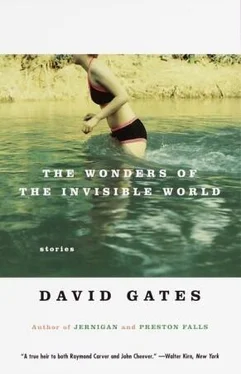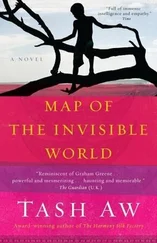Can it be that even the Giuliani administration, once so cynically adept at other-ing homeless New Yorkers, demonizing the so-called “squeegee men” and putting the police at odds with a segment of the public they exist to serve, is feeling the winds of change?
We of the New York Homeless Alliance wish to acknowledge the cooperation of the mayor’s office in facilitating the people’s exercise of their right “peaceably to assemble,” and to express our gratification at the measured police response to the (very) few potentially provocative incidents. May this march serve to put on notice all those who would polarize and divide us: The men and women of the NYPD are working people (they work for us — for all of us), and the vast majority of the homeless would be working people under the aegis of more enlightened social and economic policies.
Bernard Adler, Chair
New York Homeless Alliance
I’m like, What?
But I know. I mean I guess I sort of did know. But here it is in black and white. Real words in a real newspaper that a million people are reading in the real world. Now I feel my heart start to pound, like it took a few seconds for the idea to get through to my body: that I live with a man whose mind’s gone wrong. Take out the clothes, dry the clothes, fold the clothes — but sooner or later you have to go back to where he’s waiting.
I smell the homeless man before his shadow darkens the page.
“Excuse me for intruding.” I look up, thinking, Oh, shit. It’s the same one: white stumblebum, teeth with gaps in between like a syphilitic, carrying a dirty white paper shopping bag. “D’y’know Jim Morrison?” he says. Sort of an Irishy accent: hint of a d among the r ’s. Mawdison. “Of The Doors?”
“Yes,” I say, and look back down at the paper. Not streetwise of me to answer at all, but I believe you give each person their dignity until they ask you for something.
“There’s been a slaughter here!” he sings, or more like chants, in what he must mean to be Jim Morrison’s voice. Been comes out bean. I don’t recognize the line: I don’t know any more than just the normal about Jim Morrison, having been a Dylan person.
I get to my feet and walk away, telling myself not to run, leaving coffee, banana and newspaper behind. I wouldn’t look in that bag for anything.
There’s a phone if I can make it to the laundromat. But who would you call? The police, to report that a homeless man said something crazy? Your husband, to say you’re afraid and could he please come make it right? Save your quarters for the dryer. Let him and the thing he’s got in there, the thing he’s following you along the street with, the thing he’s now yelling about, the thing that probably isn’t anything, melt back into the Great Whatever. I’m walking faster now, he’s dropping back. And this will be just another New York story I’ll tell.
They had the air conditioner on HI COOL, and the whole downstairs smelled of roasting turkey. Friday afternoon. Finn sat in the blue armchair, which rested on Teflon wafers to protect the floor he’d finally gotten around to sanding and re-finishing. With spar varnish, not that damnable polyurethane. He was reading, of all things, Timon of Athens, which he’d remembered as being much better. So this would probably be the last time in his life he would read Timon of Athens; that made it seem sad and precious, if not especially enjoyable. As he read, he worried: that there would be too many leftovers, that Thanksgiving dinner in July wasn’t charming but simply outré, that none of the guests would know he’d been interested in American cooking before it had become fashionable, and that he had been boring James by saying so repeatedly.
James sat cross-legged in the burgundy armchair with his earphones on. Among the few possessions he’d brought along when he moved in was his collection of books on tape. Lately he’d been reading — if that was the word — Edgar Allan Poe.
“Plugged in and passive,” he’d said. “I’m the first to admit it. The MTV generation. Before your very eyes.” Affected decadence was one of James’s comic turns.
“But Poe ?” Finn had said.
“It’s camp, what can I say?” said James. “I thought all faggots were into camp back in your day.”
On the floor by his chair James had set a sweating glass of seltzer. He was forever setting his glass on the floor, and Finn was forever nagging; today especially he should just bite his tongue. He’d invited Peter and Carolyn, of course, and people from the department — Bill and Deborah Whitley, Byron Solomon — although he’d told no one it was an occasion. An anniversary, for James and Finn, could only be the anniversary of one thing, and Finn was … he called it considerate, James called it chickenshit, about shoving in people’s faces what they didn’t want to know. They’d decided to make today their anniversary, although it could also have been yesterday; by the time this had become important, it was too late to pin it down. James had gone to the library and looked in the microfiche to check the movie ads in the paper that week. Rebecca and Notorious had been Wed — Thur, but they couldn’t decide which day they’d gone. For once Finn hadn’t been teaching summer school, and James said (his decadent routine again) that he hadn’t cared what day of the week it was since the last time he’d held a job.
James’s sister Carolyn lived on the next street, one house over from Finn’s: their backyards touched at a single point. A year ago today — or yesterday — Finn had been out back taking down, at long last, the swing set that had been there when he’d bought the place. With a sledgehammer he’d pulverized the concrete plugs that anchored the supports in the ground; the swing set now lay on its side like a dog killed by a car, two stiff legs in the air. He was trying to decide if it could be knocked apart with the hammer or if he’d have to take a hacksaw to it when he noticed this “young man”—Finn hated the expression — dressed only in shorts and running shoes mowing the Sykes’s lawn. Finn nodded and received a nod in return. Carolyn had forewarned him that her brother would be coming up to stay in the house for a few days while she and Peter were in Umbria, and encouraged him to go over and introduce himself. It seemed uncivil not to make use of this opportunity, but the brother’s very good looks made Finn feel disinclined. That night, Wed or Thur, he went to what he still thought of as the Central but was now called the Symposium: the town’s musty, velvety old theater had become a revival house with air-popped popcorn and a beer-and-wine license, run by a graduate-school dropout convinced that civilized people were getting tired of VCRs. Ahead of him in the ticket line stood the young man. When he turned away from the window with his ticket, he saw Finn, smiled and nodded, and walked over.
“I think you’re Finn McCarthy,” he said.
“Well, that makes one of us,” said Finn. “However. Yes. And I think you’re the person who was so diligently mowing the Sykes’s lawn this afternoon.”
“James Chase.” The young man stuck out a hand. “Carolyn’s brother.”
“Yes, Carolyn had prepared me,” said Finn, taking the hand. “Somewhat.” Should he have? Well, it was said now. “I ought to have come over to say hello, but I was preoccupied.”
“You did look kind of menacing with that sledgehammer,” said the young man.
“That was my John Henry mode,” said Finn. “Otherwise I’m harmless enough. So Peter and Carolyn euchred you into looking after the old homestead while they traipse around sunny Italy.”
Читать дальше












